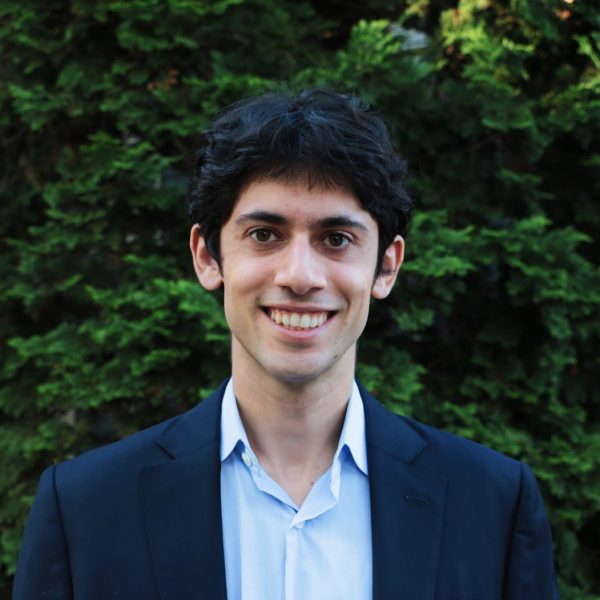April 2023: Dr. Krishna Dasaratha (CAS Economics)
 Dr. Krishna Dasaratha is an Assistant Professor in Economics at Boston University. His research is primarily in microeconomic theory with a focus on social and economic networks, including diffusion processes, social learning, and network formation. He received his PhD in economics from Harvard University in March 2021. Between 2020-21, Dasaratha was a Warren Center Postdoctoral Fellow at the University of Pennsylvania, and during the academic year 2021-22, he was a Cowles Foundation Postdoctoral Fellow at Yale University. In 2020, he was awarded the Aliprantis Prize by the Society for the Advancement of Economic Theory for a paper on “Innovation and Strategic Network Formation.” More recently, Dasaratha has been featured in a number of prestigious academic journals including the Review of Economic Studies, Games and Economic Behavior, Theoretical Economics, Journal of Integer Sequences, and the International Journal of Number Theory. Learn more about Professor Dasaratha in his full interview below.
Dr. Krishna Dasaratha is an Assistant Professor in Economics at Boston University. His research is primarily in microeconomic theory with a focus on social and economic networks, including diffusion processes, social learning, and network formation. He received his PhD in economics from Harvard University in March 2021. Between 2020-21, Dasaratha was a Warren Center Postdoctoral Fellow at the University of Pennsylvania, and during the academic year 2021-22, he was a Cowles Foundation Postdoctoral Fellow at Yale University. In 2020, he was awarded the Aliprantis Prize by the Society for the Advancement of Economic Theory for a paper on “Innovation and Strategic Network Formation.” More recently, Dasaratha has been featured in a number of prestigious academic journals including the Review of Economic Studies, Games and Economic Behavior, Theoretical Economics, Journal of Integer Sequences, and the International Journal of Number Theory. Learn more about Professor Dasaratha in his full interview below.
What made you decide to be a social scientist/why does social science matter to you?
I shifted to social science soon after starting a PhD in mathematics. I was planning to study algebraic geometry, but found I was increasingly more excited by questions about social science and politics that I encountered in my free time. I took a few economics classes, decided that economic theory would let me think about these types of questions while still doing interesting math, and applied to graduate programs again in this new field. There are a number of reasons social science matters to me, but my main motivation on a day-to-day basis is that I really enjoy looking for hidden structure in our society and behavior and thinking about innovative ways of representing that structure.
Can you tell us about a recent research project that you’re excited about?
I’ve been particularly excited recently about a project looking at how people learn from social media and how platform algorithms affect learning. (This work is with a co-author at the University of Pennsylvania, Kevin He). We’re especially interested in how some of the choices made by platforms trying to maximize engagement differ from the choices that would lead to socially desirable learning outcomes. This is a tricky question to answer on real-world platforms, and we are hoping a mix of theory and experiments on very simple versions of platforms will clarify some basic forces at play.
Our work so far focuses mostly on platforms’ decisions about how much to show users viral content rather than more ‘random’ content in news feeds—for example, content posted by their friends. One of the main findings is that platform algorithms that select mostly viral content are susceptible to feedback loops where users are convinced by peers’ (potentially wrong) beliefs and perpetuate those beliefs. These feedback loops are reminiscent of confirmation bias, but are driven by social dynamics rather than an individual behavioral bias.
What is the best piece of professional advice you ever received?
A piece of advice I come back to frequently is that when you come up with a research idea, you should spend a few weeks thinking about it before learning what related work has been done in your field. The reasoning is that the previous work will suggest particular approaches that may blunt your creativity. I don’t think this advice should always be followed literally (if you think a paper has probably already been written it makes sense to check), but I really like the mindset it suggests. Training in a particular discipline involves a lot of internalizing particular ways of thinking about research and the world. I see this process as useful in many ways (for individual researchers and for broader research endeavors), but it can also be quite constricting if we let it.
What is your favorite course you’ve taught at BU?
This is my first semester teaching at BU, but so far I’ve really enjoyed teaching behavioral economics to undergraduates (EC 323). For each topic I teach the neoclassical model of rational behavior from economics and then present evidence challenging that model from psychology, economics, and other fields. When there are accessible alternative models from behavioral economics with solid empirical support I teach those too. I’ve really enjoyed getting to expose students to some of the limitations and nuances of the models they used in their core classes.
Another fun part of the course is running experiments in class. So far most of the classical experiments have replicated, but usually with smaller effect sizes: the class is closer to “rational” behavior. But there have been surprises too!
Tell us a surprising fact about yourself.
In grad school I learned to juggle while riding a unicycle. Surely I’m too clumsy now.